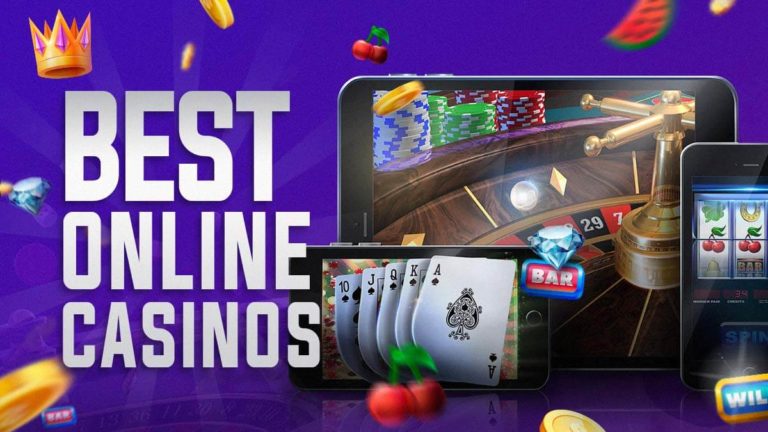
In the lively realm of gambling halls, in which the atmosphere buzzes with enthusiasm and the clinking of chips permeates the environment, the role of a dealer is both crucial and captivating. Every day, these experienced experts step into a realm where fortune and tactics converge, leading players through the ups and downs of their selected casino games. From table games like blackjack and texas hold ’em to the spinning wheels of roulette, dealers manage the action while ensuring that every game operates smoothly and fairly.
As the sun rises on another bustling day, a casino dealer prepares to immerse themselves in this vibrant environment. Their duties extend beyond just distributing cards or turning a wheel; they are also entertainers, customer service representatives, and keepers of the rules. Each shift brings new obstacles and experiences, making every day distinct in the life of a casino dealer. This behind-the-scenes look will examine the day-to-day operations of a casino dealer, highlighting the expertise and experiences that make this career both thrilling and rewarding.
The Role of a Casino Game Croupier
A gambling table dealer is at the heart of the gambling experience, orchestrating the flow of the play while ensuring that players are involved and entertained. Their primary duty is to manage the table, which includes dealing cards, rotating the wheel, or managing the chips, based on the type of game being played. Dealers must possess a thorough understanding of the regulations and guidelines governing each type of game, while also maintaining a welcoming and approachable demeanor to enhance the gaming atmosphere.
In addition to overseeing the play, croupiers must also keep a close watch on the players and the environment around the table. This entails watching for any indications of cheating, ensuring that everyone is following the guidelines, and resolving any conflicts that may arise among players. Strong communication skills are vital, as croupiers often give explanations about the game’s mechanics and offer assistance to those who may be novice to gambling games.
Furthermore, a croupier’s role extends past just the technical aspects of the play. They play a key part in creating an enjoyable experience for the players. This requires building a connection with patrons, being attentive to their wants, and often injecting an aspect of fun into the play. It’s this mix of skill, alertness, and people skills that makes the role of a gambling game dealer both challenging and fulfilling in the vibrant world of gambling games. vn88
Daily Responsibilities and Challenges
One of the main responsibilities of a dealer in a casino is to manage the various games provided at their table, making sure a seamless and satisfying experience for players. Dealers must be adept at distributing cards, handling chips, and maintaining the continuity of the game. This calls for a keen understanding of the regulations of each game, from blackjack to roulette, and the ability to address players’ questions while keeping the game moving. Attention to detail is crucial, as dealers must monitor bets, disburse winnings accurately, and watch for any cheating or discrepancies at the table.
In addition to supervising the game itself, dealers face challenges such as dealing with difficult players. The casino environment can be stressful, particularly during high-stakes games, and a dealer must remain composed and professional at all times. They need strong interpersonal skills to handle interactions with players who may be upset about losses or dissatisfied with the game’s pace. Handling these situations delicately is crucial in creating a friendly atmosphere on the casino floor.
Another significant responsibility is upholding the honesty of the game. Dealers must be vigilant and observant, watching for any signs of player cooperation or cheating among players. This involves not only a solid knowledge of the games but also an awareness of player psychology. They must also follow the casino’s rules and procedures, taking part in regular training sessions to keep updated on rules and protocols. Balancing these responsibilities while providing excellent customer service is what makes the role both difficult and rewarding for a dealer in a casino.
Skills and Traits for Success
A successful casino game dealer must demonstrate outstanding communication skills. This includes merely the ability to effectively explain game rules and procedures to players but also the capacity to engage with them in a approachable and respectful manner. Building rapport with guests can enhance the gaming experience and promote repeat visits to the casino. Strong communication enables dealers to manage tables seamlessly while ensuring that players feel valued.
Furthermore, strong mathematical skills are essential for a dealer. Quick math are often required to follow bets, payouts, and game outcomes in real-time. A dealer’s ability to perform these numerical tasks accurately and swiftly contributes to the overall efficiency of the game. This skill helps in maintaining the flow of play and in minimizing disputes or misunderstandings with players, which is crucial in a fast-paced casino environment.
Lastly, an ideal casino game dealer should show integrity and professionalism at all times. Trust is a key component of the gaming experience, and players must feel assured that the games are conducted equitably and openly. A dealer’s commitment to upholding high ethical standards fosters a friendly atmosphere at the table and enhances the casino’s standing. Being reliable in behavior ensures that dealers leave a memorable impression on guests, which can lead to a faithful customer base.
